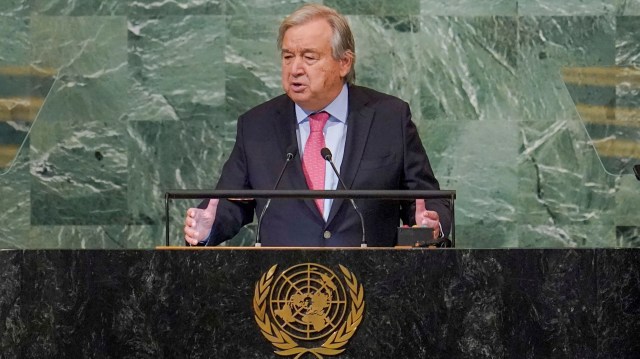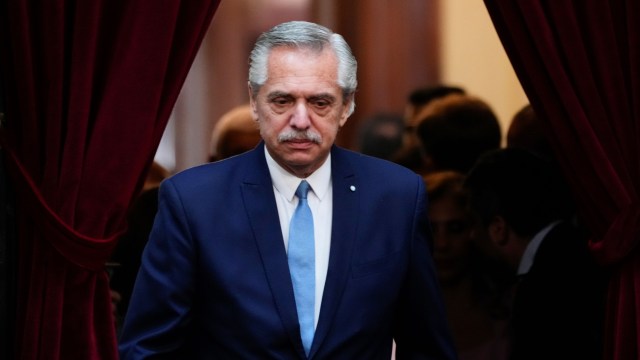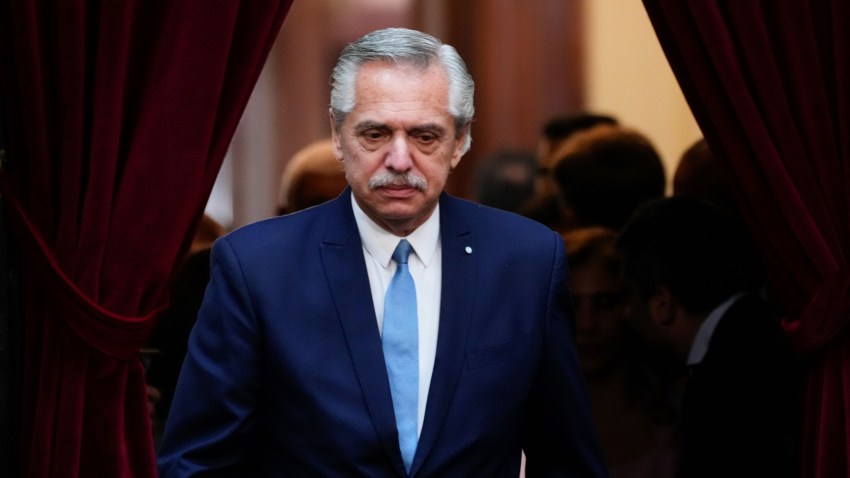Today at WPR, we’ve got stories on why U.N. reform proposals might be distracting from more urgent challenges and the appeal—and risks—of geoengineering as a possible solution to climate change.
Get the Daily Review sent straight to your inbox every weekday.
First, though, here’s our take on today’s top stories:
Saudi-China ties: At the Saudi-hosted Arab-China Business Conference this week, Saudi officials made clear that they intend to maintain a close relationship with China. “If you want a trusted partner in the world—one of the best partners in the world—it’s the People’s Republic of China,” Mohammed Abunayyan, the chairman of a Saudi renewable energy company, said. (New York Times)
Our Take: The conference follows in the wake of Chinese President Xi Jinping’s high-profile visit to Riyadh in December and the Saudi-Iran agreement to normalize diplomatic relations mediated by Beijing in April:
- For China, it highlights Beijing’s growing role as an economic partner in the region, not just for energy purchases but also for joint investments.
- For Saudi Arabia, it serves as yet another signal that Riyadh plans to pursue a non-aligned foreign policy, despite close security ties with the U.S.
- For the United States, it highlights the challenges facing Washington’s policy in a region that is increasingly willing to pursue its interests independent of U.S. preferences.
*****
U.S.-South Africa: A bipartisan group of U.S. lawmakers asked President Joe Biden to sanction South Africa for what it views as Pretoria’s support for Russia over the war in Ukraine. The request comes after the U.S. ambassador to South Africa accused the country of providing arms to Russia despite Pretoria’s stated nonalignment. (New York Times)
More Context from WPR:
- James Hamill on why South Africa’s faux neutrality goes against the country’s best interests.
- Chris O. Ògúnmọ́dẹdé on the U.S. ambassador’s accusations, and the state of U.S.-South African relations.
*****
You can read the rest of today’s News Wire, a curated selection of one must-read article from every region, here.

Once again, proposals to reform the United Nations are topping the body’s agenda. Columnist Richard Gowan writes that the reform proposals could be distracting from more urgent challenges:

The U.N’s Endless Quest for Security Council Reform Comes at a Price
In 2005, the U.N. was still reeling from the rifts caused by the U.S. invasion of Iraq, and diplomats were furiously debating ideas for reforms to the multilateral system. Fast forward to today, and Russia’s war on Ukraine is dominating U.N. diplomacy. Once again, proposals to reform the institution are also topping the agenda. Read more.
Geoengineering approaches have been touted as having the potential to unwind decades of delay and avert climate catastrophe. That’s a seductive proposal for policymakers, but as James G. Dyke writes in this in-depth story, “in attempting to hack the Earth’s climate, we may end up breaking it.”
Geoengineering Without Decarbonization Won’t Solve the Climate Crisis
A small but growing group of scientists are beginning to draft the blueprints and build the prototypes of “climate time machines,” in the form of carbon removal and geoengineering. These approaches have the potential to unwind decades of delay and avert climate catastrophe, but they are unproven and come with risks. Read more.


Question of the Day: Which of the following countries did NOT attend the recent Central Asia Summit hosted by China?
- Tajikistan
- Uzbekistan
- Kazakhstan
- Azerbaijan
Find the answer in the latest WPR Weekly Quiz, then read Emil Avdaliani’s story on what the summit means for the region.

NATO plans to set up a liaison office in Tokyo next year to use as a hub for cooperation with partners in the region. The move would be the first concrete manifestation of the alliance’s stated intention to include China as a security concern, and it was reportedly opposed by French President Emmanuel Macron.
It’s also just the latest example of how, for Europe and the trans-Atlantic alliance, formulating a united position on China is proving to be a challenge, as Sophia Besch and Tara Varma wrote.

Macron Put the Spotlight on Europe’s Disjointed China Policy
April 19, 2023 | French President Emmanuel Macron’s controversial visit to China earlier this month sparked widespread criticism on both sides of the Atlantic. Read more.
Meanwhile, Argentina’s two main political parties secured victories in regional elections held Sunday, while a libertarian upstart lagged behind. Argentina will hold national primaries in August ahead of a general election in October, for which both the Peronist camp and the center-right opposition still lack a clear candidate.
Alberto’s Exit Leaves Argentina’s Presidential Election Wide Open
April 28, 2023 | Argentine President Alberto Fernandez announced he would not run in October’s election, amid a deepening economic crisis. Read more.

That’s all for today’s Daily Review. Coming up, we’ve got stories on how Vietnam is hedging great power competition and Indonesia’s peace plan for the war in Ukraine.
Have a great day,
Jakob Cansler
More from WPR
- James Bosworth on reports that Cuba will host a Chinese spy station
- Bereket Diriba on the ongoing conflict in the Oromia region of Ethiopia
- Paul Poast on why it’s time to bring Ukraine into NATO
- Will Freeman on Ecuador’s crime surge
Jakob Cansler is WPR’s assistant editor and the author of the Cansler Culture newsletter.

